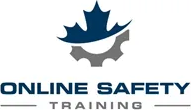Landscaping Employee Safety Training

Prioritizing Safety: Landscaping Companies and Employee Safety Training:
As the winter frost gradually recedes and signs of spring emerge across Canada, landscaping companies gear up for the busy season ahead. With warmer weather comes a surge in demand for landscaping services, ranging from lawn maintenance to garden renovations. While the onset of spring brings ample opportunities for growth and profitability, it also presents inherent risks and challenges, particularly concerning workplace safety. To mitigate these risks and ensure the well-being of employees, Canadian landscaping companies should prioritize safety by conducting comprehensive training programs before the season kicks off.
- Navigating Hazardous Terrain: Springtime landscaping activities often involve working in diverse outdoor environments, ranging from residential properties to commercial landscapes. Employees may encounter various hazards such as uneven terrain, sharp tools, machinery, and exposure to inclement weather conditions. By providing pre-season safety training, companies equip their workers with the knowledge and skills necessary to identify potential hazards, assess risks, and implement preventive measures to mitigate accidents and injuries effectively.
- Operating Equipment Safely: Landscaping tasks frequently require the use of heavy machinery, power tools, and equipment such as lawnmowers, trimmers, and chainsaws. Improper operation or maintenance of these tools can result in serious accidents, including cuts, lacerations, and crush injuries. Pre-season safety training ensures that employees are proficient in the safe operation, maintenance, and storage of equipment, reducing the likelihood of workplace incidents and equipment damage.
- Chemical Safety and Environmental Protection: Landscaping often involves the use of fertilizers, pesticides, herbicides, and other chemical substances to enhance plant growth and control pests. However, improper handling or exposure to these chemicals can pose significant health risks to workers and the environment. Pre-season safety training educates employees on the safe handling, storage, and disposal of chemicals, as well as the importance of using personal protective equipment (PPE) to minimize exposure and contamination risks.
- Preventing Musculoskeletal Injuries: The physical demands of landscaping work, such as lifting heavy objects, repetitive motions, and prolonged periods of bending or kneeling, increase the risk of musculoskeletal injuries among workers. Pre-season safety training includes instruction on proper lifting techniques, ergonomic principles, and strategies to prevent strains, sprains, and other soft tissue injuries. By promoting proper body mechanics and encouraging regular stretching and rest breaks, companies can safeguard their employees’ musculoskeletal health and reduce the incidence of workplace injuries.
- Emergency Preparedness and First Aid: Despite preventive measures, accidents and emergencies may still occur in the landscaping workplace. Whether it’s a slip-and-fall incident, heat-related illness, or equipment malfunction, employees must be prepared to respond promptly and effectively to emergencies. Pre-season safety training equips workers with essential first aid skills, CPR certification, and knowledge of emergency protocols, empowering them to take swift action in critical situations and minimize the severity of injuries or medical complications.
- Compliance with Regulatory Requirements: Canadian labor laws and occupational health and safety regulations impose specific obligations on employers to ensure a safe work environment for their employees. Failure to comply with these regulations can result in legal consequences, financial penalties, and reputational damage to the company. Pre-season safety training ensures that landscaping companies are aware of their legal responsibilities, including providing adequate training, PPE, and safety protocols, thereby mitigating compliance risks and fostering a culture of safety and accountability.
- Enhancing Employee Morale and Productivity: Investing in pre-season safety training demonstrates a commitment to employee well-being and professionalism, fostering a positive work culture and enhancing employee morale. When employees feel valued and supported by their employer, they are more likely to be motivated, engaged, and productive on the job. Moreover, by reducing the frequency and severity of workplace injuries, safety training minimizes downtime, absenteeism, and worker compensation claims, ultimately contributing to improved operational efficiency and financial performance.
Pre-season safety training is a critical investment for Canadian landscaping companies seeking to protect their employees, uphold regulatory compliance, and optimize business performance. By addressing potential hazards, promoting safe work practices, and empowering employees with the necessary skills and knowledge, companies can create a safer, more resilient workplace environment conducive to productivity, professionalism, and long-term success. As the landscaping season approaches, now is the time for companies to prioritize safety and ensure that their workforce is adequately prepared to tackle the challenges and opportunities that lie ahead.
Categories
- Aerial Lift
- ATV Training
- Bear Awareness
- Chainsaw Training
- Confined Space
- Defensive Driving
- Forklift Training
- Lockout Tagout
- Online Safety Training
- Overhead Crane
- Pipeline Construction Safety Training
- Propane Handling
- Safety Training Benefits
- Scissor Lift
- Skid Steer Training
- Space Awareness
- TDG
- Telehandler Forklift
- Traffic Control
- Train the Trainer course
- Training Course
- Uncategorized
- WHMIS
- Workplace Harassment and Violence Preventiont
